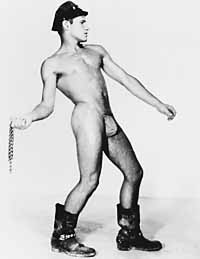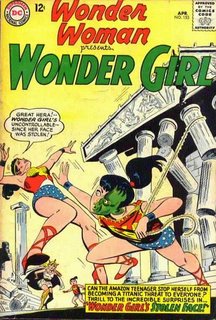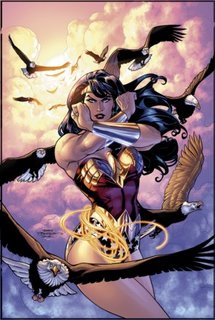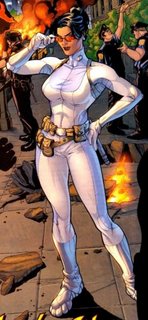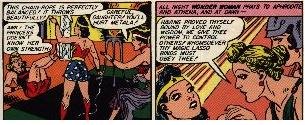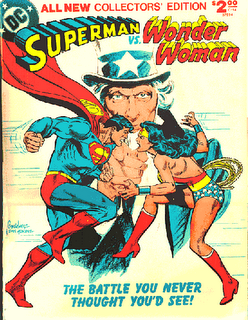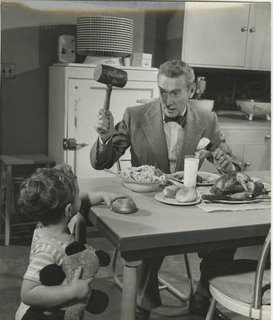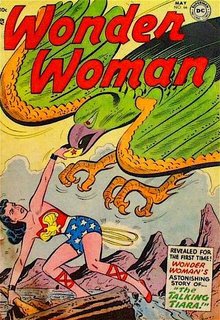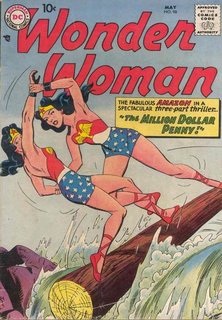
Queer Pride still matters. This might seem like an obvious statement at the end of a month of parades and parties. Yet, many within the queer community have named pride irrelevant.
Self-proclaimed “post-gays” (mostly middle-class professionals) and certain academics even get paid to disdain things like pride celebrations. The post-gays deride “gay ghettos” and repudiate “in your-face activism.” Post-gays enjoy a comfortable middle-class existence and claim, therefore, that the culture war is over.
Homophobia, you might be relieved to know, just isn’t an issue anymore in the urban U.S., according to post-gays. Post-gays name themselves a higher lifeform and smarter than those queer who live in a gay neighborhood or go to leather clubs. Post-gays don't need those things, so why should any other queers?
When pressed for explanations of their thinking, they turn to a classic move enjoyed by both white-liberals and white-conservatives: they redirect attention by pointing their boney fingers to places outside the U.S. “Homophobia isn’t
our nation’s problem,” they say, “it’s really just those poor people in third-world countries who need to catch up to our white, middle-class perceptions of the world. Everything is fine and dandy in the good ol' U.S. of A. compared to those
other nations.”
The existence of a greater injustice in another nation does not mean that the lesser injustice in your home nation suddenly becomes irrelevant. Being murdered, we can all agree, is probably worse than having your leg cut off. Yet, living without your leg would still suck. This is just another way to make people of color seem constantly deficient while also maintaining the status quo at home. You get two blocks to progress, TWO!, for the price of one.
What post-gays really mean is that homophobia really isn’t an issue in their very specific lives. Because they don’t participate or live in gay sectors of town, they rush to criticize those who do. Make no mistake: post-gays are not seeking an idealistic sexual freedom. They seek only to validate their own personal beliefs and practices. For them, homophobia isn’t the problem. It’s queer diversity that hurts us. If queers didn’t
act queerly or, I guess, all live in the same apartment building, straight folk wouldn’t notice our difference from them.
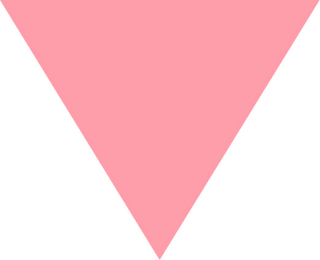
Likewise, a significant number of queer academics also imagine themselves as being above pride. They pooh-pooh their queer brothers and sisters for “blindly adopting and replicating the nineteenth-century categories of ‘homosexual/heterosexual.’” These academics have used their stunning intellectual powers so that they no longer need such terms. They pull off a neat trick of both claiming that a gay community does not really exist (because it is all imagined) and also state that “gay culture” (which one would think is equally imagined) is vapid and vacuous.
This crew, in my experience, generally show only the shakiest understanding of queer theory. Yet, they are more than happy to use that little bit of knowledge to bludgeoned those around them.
Both “post-gays” and those academics are often fairly mediocre thinkers. They don’t really have a lot to offer us. The media (queer and non-queer), however, gives them oodles of attention. Oddly, even as they repudiate the notion of "gay culture," it never troubles either the post-gays or these particular academics to get a pay check from an all-gay magazine or newspaper.
Their world-view often returns to a fairly simplistic vision where one’s sexuality has little relevance in day-to-day life. Their benchmark for safety stops at people being able to say that they have a same-sex relationship. Almost always, though, when these groups start talking about that nonexistant utopia, they default to visions created under heteronormative standards. They don’t talk of sexual revolt. Instead, they want to blend into existing heterosexual standards. For them, they don’t want a queer community because they imagine being inconspicious in the [straight] larger community is
so much better. Gay clubs, pride marches, and even rainbow flags become anathema to them. Well, okay, I must admit that I wish we would get a better flag than the rainbow. That, though, is another
entry and for different reasons than the post-gays.
We have listened to what these post-gay types have to say. This doesn’t mean that they have not raised some valid critiques that we can’t address. Hell, a monkey with a machine gun will eventually hit the target if he keeps firing long enough. I certainly agree, for instance, that we have allowed corporations to coopt things like pride celebrations as just another means to sell liquor, cigarettes, and prescription drugs. These types of issues we can address.
Simply believing, however, that homophobia no longer exists does not make it true. Just because you personally did not have your jaw broken doesn’t mean our queer brothers and sisters aren’t facing violence across the U.S. (Yes, even in those allegedly safe urban areas). The threats of violence can be even greater for those in our community with overlapping identities as racial minorities.
Knowing the etymology of the term “homosexual,” likewise, does not somehow make a person separate from the current dominant discourse or political climate. Even Judith Butler, the undisputed queen of queer studies, acknowledges that we often need the modern categories, though socially constructed, when it’s necessary to mobilize for political purposes. She, unlike those other mediocre academics, understands that ideologies about sexuality and gender exercise power in our daily lives no matter how smart we might be. It’s hubris to think one can rise entirely above the discourse that informed our individual knowledge.
Let those, like the post-gays, who dissuade queer unity exist as tacit remembrances of our greater goals for true sexual liberation and diversity. They can be symbols, in their error, representing the true freedom that we wish to achieve as a queer community. We can demand that they be guaranteed personal safety to fulfill their own desires of heteronormative assimilation, if they feel it will bring them personal satisfaction. As we engage in the real fight for sexual diversity, we must also acknowledge their right to safely maintain their errata of opinion as part of that diversity.

Now more than ever, though, we need to respond to any person who wants to dismantle a sense of community among queer folk with suspicion. Pride matters because we, as a queer community, demand that it matters. We exist as a queer community because we imagine ourselves as united in common struggles.
This is not about being proud of simply having sex with somebody of the same sex. Or being proud about having the desire to have sex with somebody of the same sex. There is nothing innately better or worse about those desires and acts.
Pride matters because, in our society, having those desires and pursuing those acts informs our daily lives. We have unique experiences and challenges that hetero folk never imagine.
I do not identify and claim union with a queer community because I am uninformed about the historical processes that created modern assumptions about sexuality. I identify and claim union with a queer community because I choose to align myself with those others who reject the sexual status quo.
Pride matters because we have collectively done much that makes us proud. Each one of us who claims a queer identity has shucked off a life-time of subtle (and not so-subtly) messages that said we can’t have a fulfilling life without being a monogamous heterosexual.
Let’s not pay attention to those in our community who claim that our community does not exist. Those individuals lack relevance. Instead, let’s hold onto each other as we keep fighting for real sexual freedom.
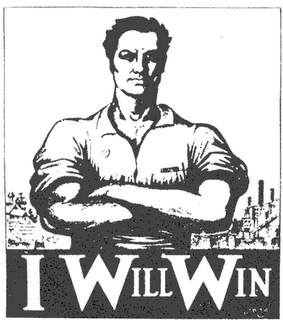
 Apparently every blogger faces this issue from time to time. We all go through periods where our original ideas don’t flow as smoothly as they usually do. Then we start to fear we will lose all of our loyal readers. “No, no,” I hear you saying, “We would never leave you! Hail, GayProf, full of grace! Blessed are you among bloggers, and blessed is the fruit of your mind, the Center of Gravitas. Holy GayProf, pray for us sinners now and at the hour of our death.” At least, I am pretty sure that’s what I hear you saying.
Apparently every blogger faces this issue from time to time. We all go through periods where our original ideas don’t flow as smoothly as they usually do. Then we start to fear we will lose all of our loyal readers. “No, no,” I hear you saying, “We would never leave you! Hail, GayProf, full of grace! Blessed are you among bloggers, and blessed is the fruit of your mind, the Center of Gravitas. Holy GayProf, pray for us sinners now and at the hour of our death.” At least, I am pretty sure that’s what I hear you saying. 




